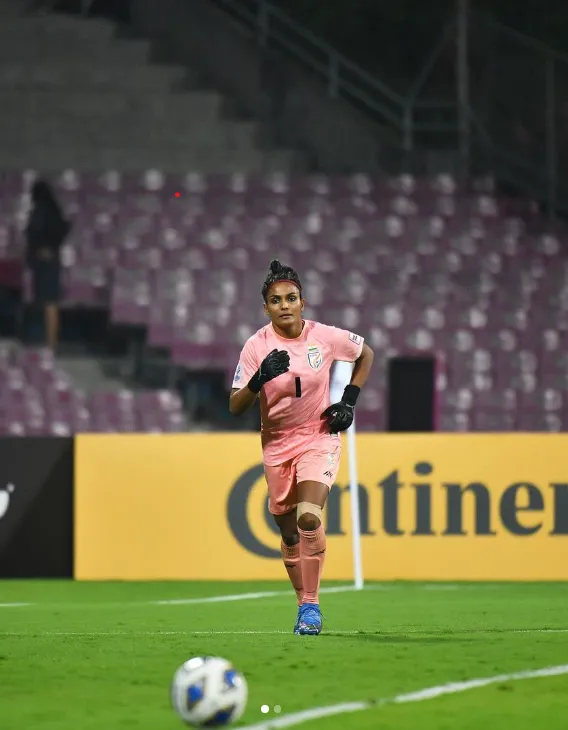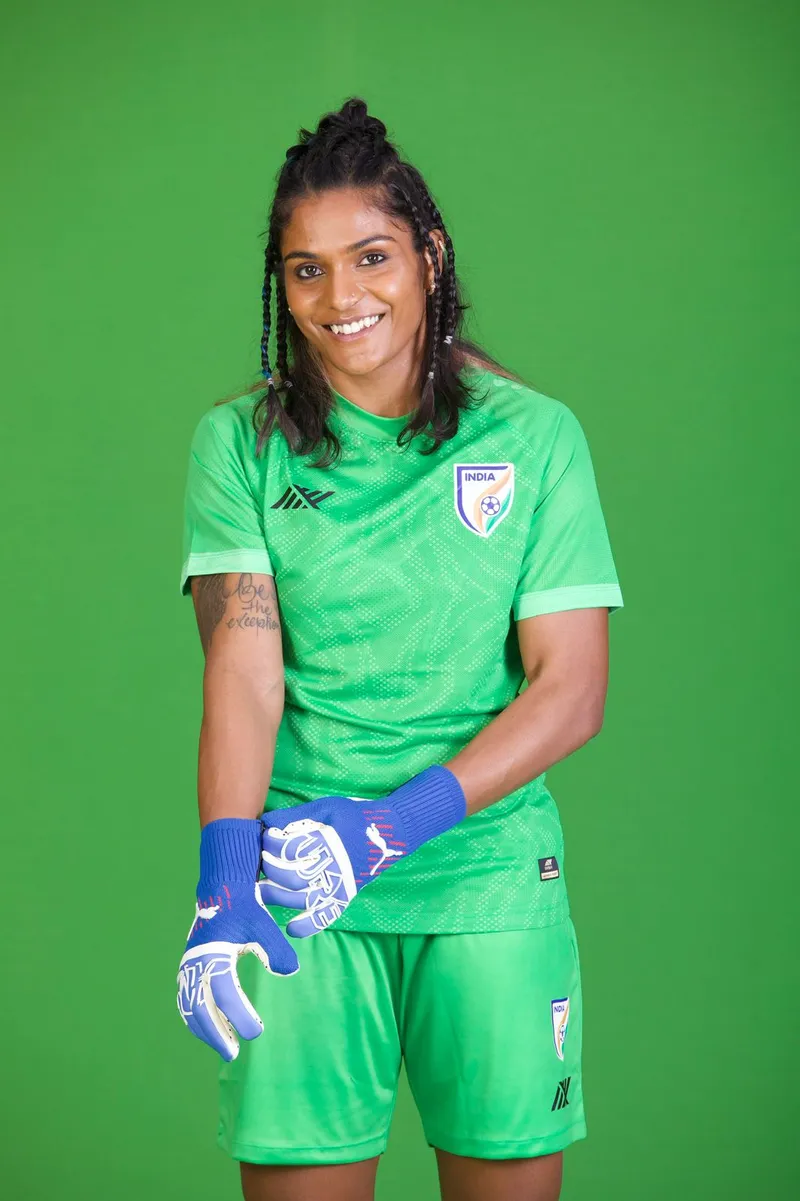Penalty spot: Aditi Chauhan on women’s football and helping young girls find their game
India’s star goalkeeper Aditi Chauhan talks about her football journey, her stint at West Ham Ladies United, and her passion project, She Kicks Football Academy.
When footballer Aditi Chauhan suffered from an ACL injury in the knee while playing for West Ham Ladies United in 2017, she was out of action for a whole season of the Women’s Super League.
“No woman footballer had made it back to the national team after an ACL injury and I was fortunate to be able to do so,” Chauhan says.

Unfortunately, in February this year, while playing a friendly match against Nepal in Chennai, she suffered from yet another ACL injury.
Speaking to HerStory on the eve of her surgery, she remains confident of making another strong comeback despite missing the Indian Women’s League that started on April 26.
“That’s the biggest motivation I have, to get back on the field and start playing again for India,” she says.
Played for the Indian team for the past 14 years as a goalkeeper, Chauhan is one of women’s football’s most consistent names—both on the national and the club circuit. She led Gokulam Kerala FC to two wins in the Indian Women’s League (IWL) in 2018-19 and 2021-22.
Football, by chance
Football was not her first choice while growing up. An Army brat, she moved around the country, and her earliest memories of the sport were shadowing the moves of her brother who practised taekwondo. When she was in the fourth grade, the family decided to move them to Delhi for their education.
“Always an outdoorsy person, I continued to be active in a variety of sports in school. I played inter-district basketball, athletics, shot put, discus throw, and javelin. I started to veer more towards basketball when my coach suggested attending a trial for the under-19 women’s football team,” she says.
On a lark, and with the excitement of travelling by train from Delhi to Puducherry, Chauhan decided to give it a go. Her coach had suggested she try out as a goalkeeper as she was athletic. She was selected as the third choice in the trials.
She admits when she started playing football, she was not even aware of the women’s national football team. She didn’t receive a lot of encouragement either. Even her parents were apprehensive about her decision.
“My father told me if I really wanted to play sports, why not choose an individual one (rather than team sport)? My extended family wasn’t supportive and the biggest challenge was the lack of awareness. We didn’t know what was the next step, how to go about it, and what kind of training facilities were available,” Chauhan says.
She figured things out on her own and continues to do so. She kept pushing herself; the aim was to be the first choice for the goalkeeper, and not settle for the second or third. She made it to the Indian senior women’s team where she continued playing for 14 years.
In between, she moved to the UK to study Sports Management at the University of Loughborough. She also joined West Ham United, becoming the first Indian woman footballer to play in the Women’s Super League.
This was a turning point for her—both on and off the pitch.
The experience taught her to “play with her feet and play out from the back,” and with greater intensity than ever before.
“It also made me a better person, because I was living and managing everything on my own. I bought a used bicycle so that I could save money on train travel,” she adds.
Helping young girls play

On her return, she realised that not much had changed at the grassroots level for women’s football in India.
There was very little awareness and that’s when she decided to launch She Kicks Football Academy in 2019.
An initiative of the Aditi Chauhan Foundation, it supports underprivileged girls to become football players.
“Since January last year, we have been providing free football coaching to 30 girls for underprivileged families. We also help them with free transport and have also registered a club, She Kicks FC, that plays on the Delhi club circuit,” she shares.
The club gives exposure to a competitive environment and also gives the girls a platform to be scouted by the national team or other professional clubs, and open up opportunities for socio-economic change.
She explains, “The game challenges the girls physically as a contact sport, and also empowers them mentally to take a stand and form opinions. I understand that every girl may not make it to the top level, but will definitely learn life skills and also enable them to choose other careers within the industry.”
“It’s not easy to sustain this, so we are looking at crowdfunding and sponsors to fund the programme,” she adds.
Chauhan believes the media can play a huge role in spreading awareness about the game by “writing more stories and highlighting the girls’ journeys.”
“Also, matches should be made more accessible to fans and the public so that it’s easier for them to follow the players and teams. Everything cannot be done by the government alone, I think it’s time the private sector starts investing in women’s football.”
However, being a goalkeeper can be lonely. “If you make one mistake, people will never let you forget it; they will easily forget your best saves and performances in the best. You will have to accept the mental pressure, believe in yourself, and come back stronger,” she advises women goalkeepers.
Edited by Kanishk Singh







